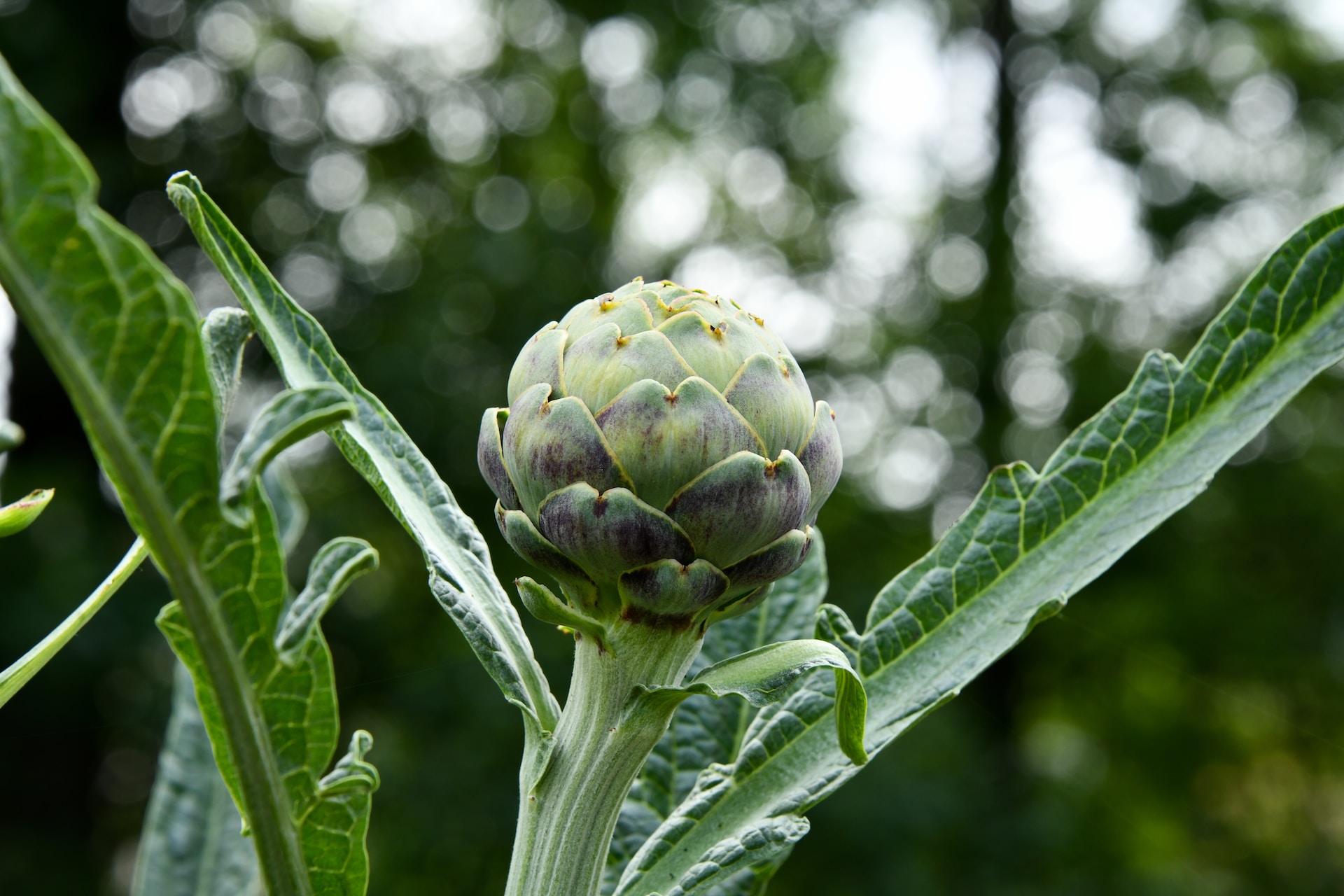
Artichokes are a unique and fascinating vegetable that often gets overlooked in the culinary world. With their distinct shape, thorny leaves, and hearty texture, artichokes offer a delightful flavor and a host of health benefits. Whether you enjoy them steamed, grilled, roasted, or stuffed, artichokes can be a versatile addition to your recipe repertoire.
In this article, we will explore 14 interesting facts about artichokes that will not only increase your knowledge but also give you a deeper appreciation for this delightful vegetable. From their ancient origins to their role in traditional medicine, artichokes have a rich history that spans centuries. So, let’s dive in and uncover some fascinating tidbits about these spiky, green wonders!
Key Takeaways:
- Artichokes are not just a vegetable, but a type of thistle. They are packed with nutrients and have a unique, nutty flavor. They have been enjoyed for thousands of years and are considered a delicacy in many cuisines.
- Artichokes are the edible buds of a thistle plant and are a labor of love to prepare. They are versatile in cooking and have been used for medicinal purposes for centuries. California and Italy are the largest producers of artichokes.
Artichokes are actually a type of thistle.
Contrary to popular belief, artichokes are not a vegetable, but rather a variety of thistle. They belong to the same family as daisies and sunflowers.
Artichokes are one of the oldest cultivated vegetables in the world.
Humans have been enjoying artichokes for thousands of years. They were cultivated by the ancient Greeks and Romans, who considered them a delicacy.
The largest producer of artichokes is Italy.
Italy is renowned for its artichoke production, particularly in the regions of Sicily and Puglia. The favorable climate and fertile soil contribute to the high-quality artichokes grown there.
Artichokes are packed with nutrients.
Artichokes are rich in fiber, vitamins C and K, folate, and antioxidants. They are also a good source of minerals such as potassium and magnesium.
The artichoke flower is actually the bud of the plant.
Before it fully blooms into a vibrant purple flower, the artichoke is harvested while it is still a closed bud. This is the part that is typically eaten.
The leaves of an artichoke can be eaten.
While most people discard the outer leaves of an artichoke, the tender inner leaves towards the base are edible. They can be steamed or boiled and enjoyed with a dipping sauce.
Artichokes are known for their unique flavor.
The taste of an artichoke can be described as nutty, earthy, and slightly sweet. It is a flavor that is quite distinct and unlike any other vegetable.
Artichokes are considered a delicacy in many cuisines.
Artichokes are prized in Mediterranean, French, and Italian cuisines. They are often featured in gourmet dishes, such as stuffed artichokes or artichoke hearts in pasta.
California is the largest producer of artichokes in the United States.
The ideal climate of California’s coastal regions makes it the perfect location for growing artichokes on a large scale. Castroville, California, is known as the “Artichoke Capital of the World.”
Jerusalem artichokes are not related to artichokes.
Despite the name, Jerusalem artichokes are not related to true artichokes. They are actually the tuber of a species of sunflower and have a distinct, slightly sweet flavor.
Artichokes have been used for medicinal purposes for centuries.
In ancient times, artichokes were believed to have various health benefits, including improving digestion and liver function. They were also considered an aphrodisiac.
The globe artichoke is the most common type of artichoke.
The globe artichoke, also known as the French artichoke, is the most widely cultivated and consumed variety. It is known for its large, round shape and thick leaves.
Artichoke hearts are a versatile ingredient.
Artichoke hearts are commonly used in salads, dips, pasta dishes, and pizzas. They add a unique and delicious flavor to various recipes and are loved by many food enthusiasts.
Cooking artichokes can be a labor of love.
Preparing artichokes for cooking requires trimming and removing the tough outer leaves, a task that can be time-consuming. However, the end result is well worth the effort for artichoke lovers.
Conclusion
In conclusion, artichokes are a nutritious and versatile vegetable with numerous health benefits. From aiding digestion and promoting liver health to supporting weight loss and controlling blood sugar levels, this spiky vegetable offers a range of advantages. Whether enjoyed steamed, sautéed, grilled, or incorporated into dips and salads, artichokes add a unique flavor and texture to any dish. With their impressive nutrient profile and antioxidant properties, artichokes are a fantastic addition to a balanced diet.
FAQs
Q: How do I choose a fresh artichoke?
A: Look for artichokes that feel heavy for their size, have tightly closed leaves, and show no signs of wilting or browning.
Q: How should I store fresh artichokes?
A: Place them in a plastic bag and store them in the refrigerator for up to a week.
Q: How can I cook artichokes?
A: Artichokes can be steamed, boiled, grilled, or stuffed, depending on your preference. Each method yields delicious results.
Q: Are artichokes difficult to prepare?
A: While artichokes may seem intimidating, they are relatively easy to prepare. Simply trim the leaves, remove the choke, and cook as desired.
Q: Are artichoke hearts the only edible part?
A: While the heart is the most commonly consumed part, the tender outer leaves and the base of the artichoke are also edible and delicious.
Q: Can artichokes help with digestion?
A: Yes, artichokes are a great source of dietary fiber, which can aid digestion and promote a healthy gut.
Q: Can artichokes help with weight loss?
A: Artichokes are low in calories and high in fiber, which can help you feel full and satisfied, making them a great addition to a weight loss diet.
Q: Are there any health benefits of consuming artichokes?
A: Yes, artichokes are packed with antioxidants, vitamins, and minerals, which can enhance liver function, support heart health, and strengthen the immune system.
Q: Are artichokes safe for everyone?
A: While artichokes are generally safe for consumption, individuals with certain medical conditions or allergies should consult with a healthcare professional before including them in their diet.
Q: Can artichokes be frozen?
A: Yes, artichoke hearts can be frozen if properly blanched and stored in freezer-safe containers.
Artichokes are truly fascinating vegetables with a rich history and numerous health benefits. If you're hungry for more artichoke knowledge, explore our other articles that delve deeper into this thistle's captivating world. From uncovering additional surprising facts about artichokes to learning about their lesser-known relative, Jerusalem artichokes, and even discovering the Spanish term for this beloved vegetable, our informative pieces will satisfy your curiosity and inspire you to incorporate artichokes into your culinary creations. So, keep reading and expand your understanding of these delightful and nutritious plants!
Was this page helpful?
Our commitment to delivering trustworthy and engaging content is at the heart of what we do. Each fact on our site is contributed by real users like you, bringing a wealth of diverse insights and information. To ensure the highest standards of accuracy and reliability, our dedicated editors meticulously review each submission. This process guarantees that the facts we share are not only fascinating but also credible. Trust in our commitment to quality and authenticity as you explore and learn with us.


